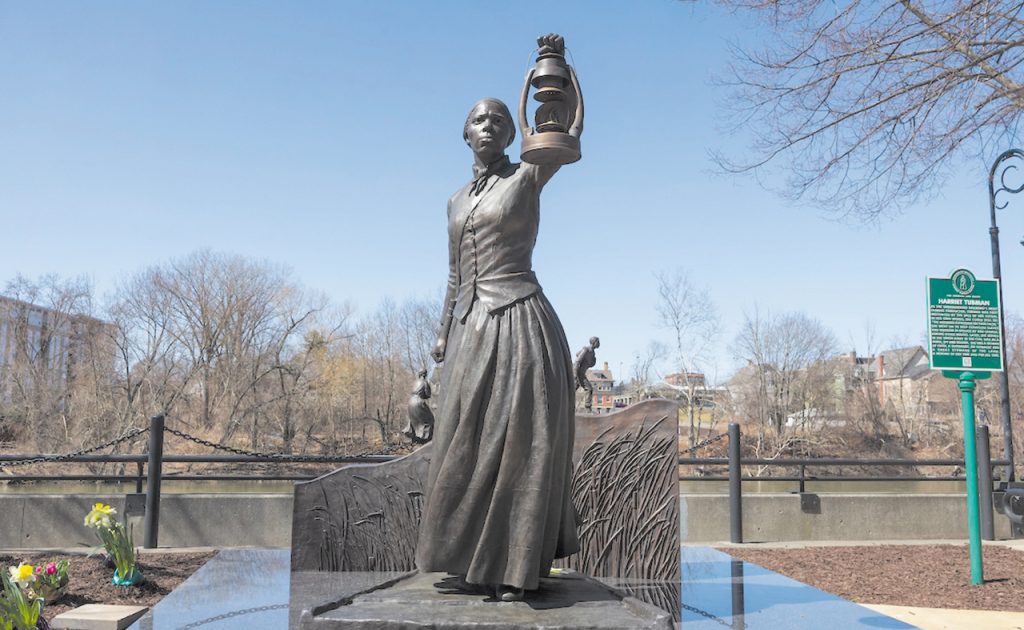BINGHAMTON — Downtown Binghamton now includes a statue of Harriet Tubman, the famed abolitionist and activist who led slaves to freedom along the Underground Railroad. The statue is located at Tubman’s marker along the Downtown Binghamton Freedom Trail, a public trail denoting Underground Railroad stops and other anti-slavery and civil-rights sites. The Harriet Tubman Center […]
Already an Subcriber? Log in
Get Instant Access to This Article
Become a Central New York Business Journal subscriber and get immediate access to all of our subscriber-only content and much more.
- Critical Central New York business news and analysis updated daily.
- Immediate access to all subscriber-only content on our website.
- Get a year's worth of the Print Edition of The Central New York Business Journal.
- Special Feature Publications such as the Book of Lists and Revitalize Greater Binghamton, Mohawk Valley, and Syracuse Magazines
Click here to purchase a paywall bypass link for this article.
BINGHAMTON — Downtown Binghamton now includes a statue of Harriet Tubman, the famed abolitionist and activist who led slaves to freedom along the Underground Railroad.
The statue is located at Tubman’s marker along the Downtown Binghamton Freedom Trail, a public trail denoting Underground Railroad stops and other anti-slavery and civil-rights sites.
The Harriet Tubman Center for Freedom and Equity at Binghamton University unveiled a statue of Tubman during a special event on March 21 at the Binghamton University Downtown Center, the school said. The center is located at 67 Washington St. in Binghamton.
“Our hearts are so full today to see all of our co-creators and collaborators who opened their door and let us in when we told them about our dream for this day,” Sharon Bryant, associate director of the Harriet Tubman Center for the Study of Freedom and Equity, said in the school’s announcement. “It’s nice to be part of a university and a community that is so open-minded and willing to work together on a common goal.”
Bryant also serves as associate dean for diversity, equity, and inclusion at Binghamton’s Decker College of Nursing and Health Sciences.
The Tubman Center chose to unveil the statue in March as Harriet Tubman Day falls on March 10. Anne Bailey, professor of history and director of the Tubman Center, said that the tour represents the advancement of freedom and equity from Harriet Tubman to Martin Luther King, Jr.
The tour ends with the statue of King on the riverfront, but it is not the end of the journey. “Tubman, King and the other multicultural heroes on the tour are passing the torch to all of us,” Bailey noted.




